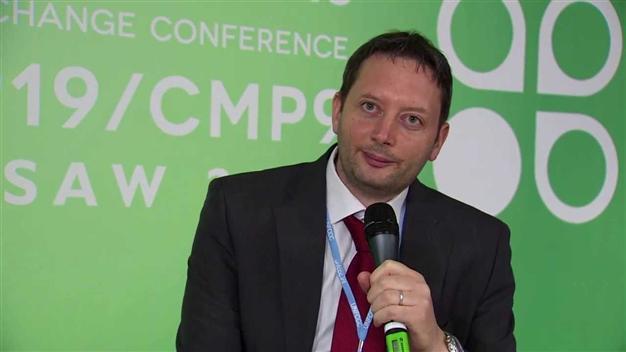FAO to help Turkish agriculture cope with climate change
Öykü Altuntaş – Antalya / Doğan News Agency

The United Nations’ Food and Agriculture Organization (FAO) will kick off projects and household surveys in Turkey and the region to assure food security and agriculture sustainability in a bid to cope with climate change.
Projects will “aim to restore healthy ecosystems, promote environmentally friendly agricultural practices and raise levels of knowledge among government institutions,” for farms and communities in Turkey, according to the FAO.
FAO projects in Turkey will involve household surveys on farmers’ incomes, common expectations, diets, extra hours of labor and some other composites, FAO Climate Change and Energy Coordinator for Europe and Central Asia Reuben Sessa told Doğan News Agency in an interview.
“The organization has been making analysis work on COP21 Intended Nationally Determined Contributions [INDCs] on FAO sectors, while seeking to support countries by mechanisms on implementing certain components,” Sessa said.
‘Climate-smart agriculture’ approach
Accordingly, the FAO’s climate-smart agriculture (CSA) approach will be at the heart of these projects, he added. The CSA, which was developed in 2010, combines issues such as improving efficiency, reducing losses and climate change adaptation and mitigation.
“Working within the landscape requires methodology to assess stakeholders’ social, environmental and economic context, scenarios and impacts of climate change, in different regions. [The] FAO suggests measures and interventions to show what the win-win-wins are so they can select and foresee potential barriers such as knowledge and access to market,” Sessa said.
The concept also involved efforts to bring agriculture and environment ministries together to develop policies because at the local level they may not match in certain cases, he added.
Potential challenges for projects in Turkey
The FAO will also consider potential challenges in Turkey and countries in the region when implementing projects, Sessa explained. These challenges include “friction between stakeholders within [the] local landscape and taking consensus of different communities, such as environmentalists and farmers,” according to the FAO expert.
“Incompatibility between ministries and mismatches between national policy and local legislations could be tricky,” he added.
According to Sessa, a lack of comprehensive and integrative data produced by intensive case studies, which assess several parameters for different regions, was among these difficulties. Some big challenges are ahead for countries, especially because the food sector involves a lot of stakeholders and interventions in funding, legislation and policy levels, he said.
“The system is quite complex and you sometimes have to simplify for each individual working on the projects. Otherwise it can be overwhelming. You can give the bit that’s relevant to them so they can move on with contributing,” Sessa said.
FAO content with Paris agreement outcome
According to Sessa, the FAO was “happy” with the recently-signed Paris climate change agreement because “food security, forestry and support to the farming system are coming through very strongly.”
The COP21 conference, which led to a major agreement, gave the “right political signals and shifts in the international climate change arena,” according to Sessa, who underlined the national contributions to “climate-smart agriculture” and tackling the impacts of this global threat.
‘More with less’ in production
“We hope that we will see a shift in production,” Sessa said, adding the FAO advocated producing “more with less external inputs and with more efficient natural resource use” and developing ecosystem services within the “sustainable intensification of agriculture” goals.
The FAO noted the Sustainability Assessment of Food and Agriculture systems (SAFA) concept developed recently by the organization would be an urgent step forward for food sustainability. The concept assesses sustainability for trade-offs and synergies via environmental-social parameters and helps with setting baselines such as current income and environmental traits.
 The United Nations’ Food and Agriculture Organization (FAO) will kick off projects and household surveys in Turkey and the region to assure food security and agriculture sustainability in a bid to cope with climate change.
The United Nations’ Food and Agriculture Organization (FAO) will kick off projects and household surveys in Turkey and the region to assure food security and agriculture sustainability in a bid to cope with climate change.